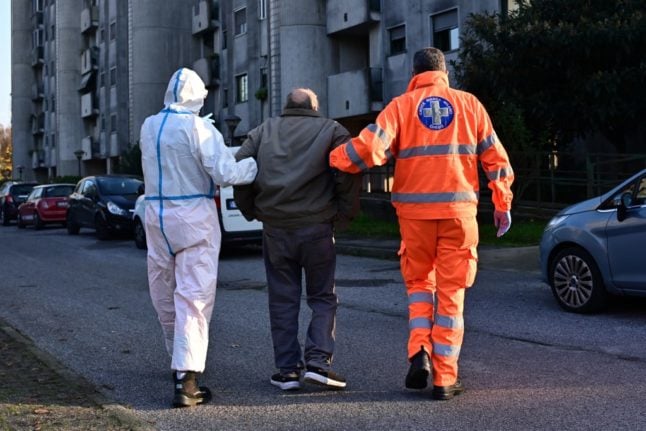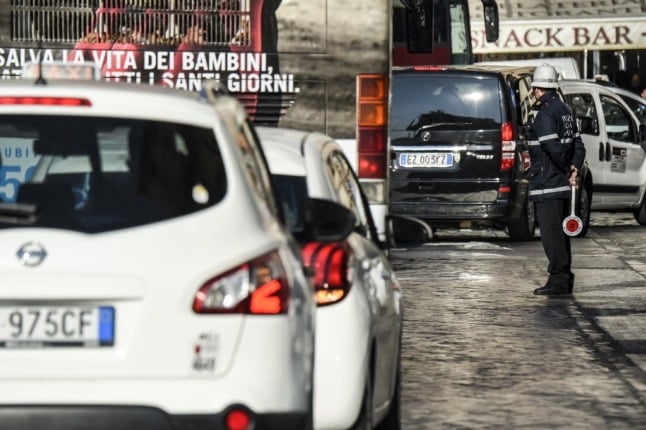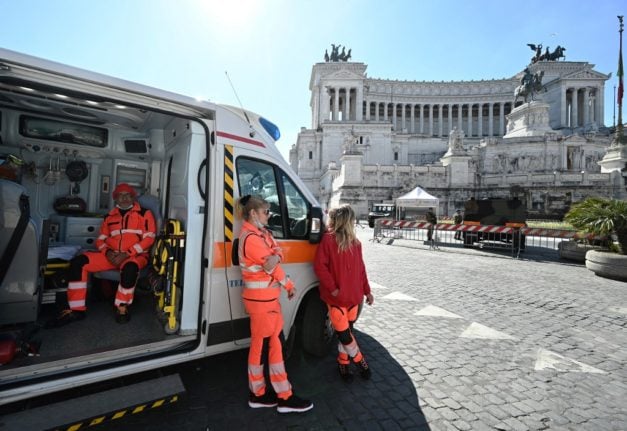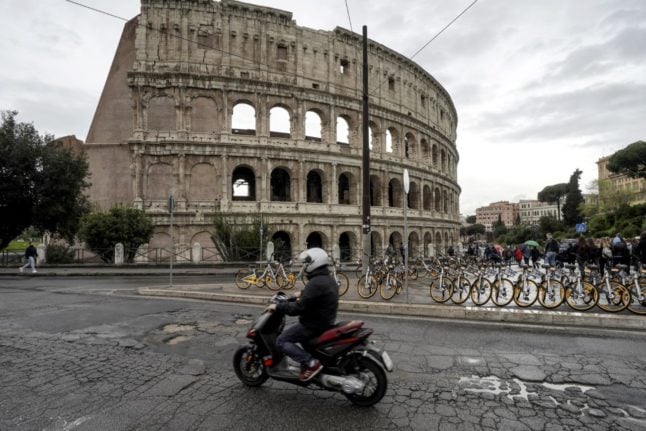Whether you live in Italy or are just visiting, knowing who to call in the case of an emergency is crucial to keeping you and those around you safe.
You can report anything on 112, the single European emergency number, whose operators will direct you to the relevant services.
But knowing the direct number to call could get you a faster response in a situation where time is critical.
Here are the main phone numbers you’ll need to report an emergency in Italy.
What is Italy’s equivalent of 999 or 911?
Within Italy, the general number for all emergencies – the equivalent of 999 in the UK or 911 in the US – is 113.
This nationwide number connects you to the state police (Polizia di Stato), the civil police force that will assist you not only if you’re reporting a crime but for any other kind of emergency too.
They’ll probably ask you the following questions:
- What is your emergency? – Qual è la sua emergenza?
- What happened? – Cosa è successo?
- Can you give me the address/the coordinates? – Può darmi l’indirizzo/le coordinate?
READ ALSO: How to stay safe while travelling in Italy

Useful phrases
Help! – Aiuto!
Call the police – Chiami la polizia
Is there anyone here who speaks English? – C’è qualcuno qui che parla inglese?
There has been an accident – C’è stato un incidente
Someone has stolen my bag/wallet/phone – Mi hanno rubato la borsa/il portafoglio/il telefono
Please hurry – Fate presto, per favore
Who should you call about a fire?
To reach the fire service (Vigili del Fuoco), dial 115.
Be aware that firefighters (pompieri) in Italy don’t just put out fires: they also lead searches, rescues and other first-response operations, so you can also call them to report anyone in need of immediate assistance – for instance, someone trapped in a flood or missing while hiking.
READ ALSO: What to do and what to avoid if you see a wildfire in Italy
Useful phrases
Fire! – Al fuoco!
Call the fire brigade – Chiami i pompieri
There’s a fire – C’è un incendio

Photo: Alberto Pizzoli/AFP
Who should you call for an ambulance?
To report a medical emergency (emergenza sanitaria), call 118.
They’ll ask you to describe the circumstances and, depending on the gravity of the situation, assign a colour code:
- White (bianco): non-critical;
- Green (verde): non-urgent;
- Yellow (giallo): critical/urgent;
- Red (rosso): emergency.
They’ll then dispatch the appropriate assistance to provide treatment at the scene and/or take you to the nearest hospital.
Useful phrases
Call an ambulance – Chiami un’ambulanza
I need a doctor – Ho bisogno di un dottore
Take me to the emergency room – Portatemi al pronto soccorso
Some people are badly injured – Ci sono feriti gravi
He/she hit his/her head – Ha battuto la testa
He/she is unconscious – Lui/lei è svenuto/a
He/she isn’t breathing – Non respira

Photo: Filippo Monteforte/AFP
Who should you call about an emergency at sea?
Italy’s coast guard (Guardia Costiera) can be reached at 1530.
The service handles search-and-rescue operations at sea, as well as assisting vessels in distress and protecting safety at ports and on beaches.
Who should you call about financial crimes?
To report suspected smuggling, counterfeiting, tax fraud, illegal employment or other economic crimes, call Italy’s finance police (Guardia di Finanza) on 117.
Example: think you’ve been ripped off by a restaurant that doesn’t display its prices and is refusing to give you a receipt for a sky-high charge? Threaten to denunciare them to these guys.
Who should you call for roadside assistance?
To request help on the road (soccorso stradale), dial 803 116 from an Italian phone or 800 116 800 from a foreign mobile.
You can also use one of the SOS phones located roughly every two kilometres along Italian motorways (press the button marked with a spanner for mechanical assistance, the red cross for medical aid).
You’ll be connected to the Automobile Club d’Italia (ACI), the national motorists’ organization, which provides breakdown assistance to any driver for a fee or free of charge to its members.
To report any other road emergency, such as an animal abandoned by the motorway, call 112 or 113 and ask for the Polizia Stradale, the unit in charge of policing Italy’s roads.
For traffic information, call 1518.

Useful phrases
My car won’t start – La mia macchina non parte
I’ve run out of fuel – Sono rimasto senza benzina
I have a flat tyre – Ho una gomma a terra
Smoke is coming from the engine – Il fumo sta uscendo dal motore
READ ALSO:
- Ten Italian road habits to watch out for
- ‘Expect the unexpected’: What you need to know about driving in Italy
Who should you call to report a child in danger?
Italy has a dedicated helpline for risks to children and adolescents (emergenza infanzia): to request help for yourself or someone else, dial 114.
You can also reach the service by chat, SMS, WhatsApp, email or by downloading its app: see 114.it for more details.
Who should you call to report an animal in anger?
Sadly it’s not unusual to come across abandoned animals in Italy. Whether you’ve found a malnourished dog or cat left outdoors or have witnessed mistreatment of a pet, you can report this to the authorities.
Every local health office (ASL) has a veterinary service (Servizio Veterinario dell’ASL) which you should notify if you find an abandoned animal. The contact details should be on your local ASL’s website.
If an animal is trapped, for example inside a hot car, or is in immediate danger you can also call the local police (vigili urbano). The number should be on your comune or regione‘s website, or you can call via your town or region’s main switchboard.
Animal abuse is a crime in Italy and cases can also be reported to the state police or the Carabinieri, the military police force that can assist with any emergency.
Who should you call about domestic abuse or stalking?
Report family violence or harassment via the free emergency helpline 1522.
Assistance is available 24/7 in Italian, English, Spanish, French or Arabic, including by online chat.
Who should you call to report a gas leak?
If you smell gas or notice other signs of a leak (fuga di gas), alert gas company Italgas via the 24/7 helpline 800 900 999.
They’ll send an emergency technician to check for leaks, free of charge.
Who should you call about a forest fire?
As well as alerting the fire service, you can report wildfires directly to the Carabinieri’s forestry and environment unit on 1515.

Photo: Mario Laporta/AFP
It’s also the service to call about poaching, illegal construction, endangering protected species or any other offences against Italy’s environment.
If in doubt…
If you’re not sure who to speak to, call 112. You’ll be connected to the Universal European Emergency Services, who can direct you to the correct line. Depending on where in Italy you’re calling from, it may put you through directly to the Carabinieri, the military police force that can assist with any emergency.
The number is available free of charge everywhere in the EU from all phones, including mobiles, and you can call it even without credit or a valid SIM card. Assistance is available in multiple languages, including English.
You can also download an associated app, Where Are U, which automatically transmits your location from your smartphone to 112 operators; however, it only functions in certain regions of Italy (for more information, click here).



 Please whitelist us to continue reading.
Please whitelist us to continue reading.
Member comments